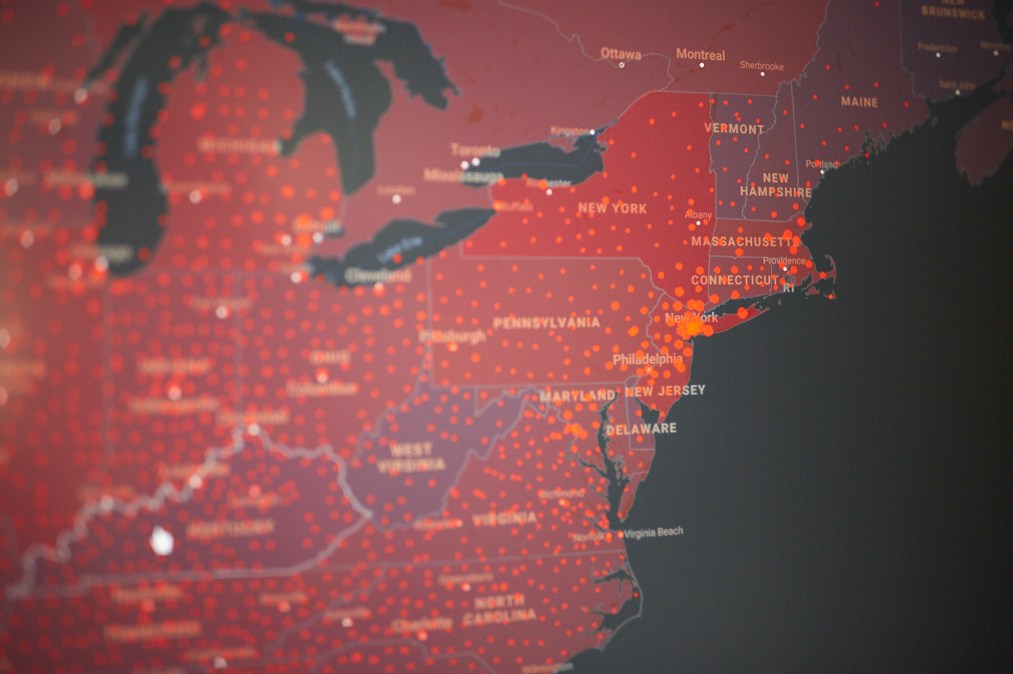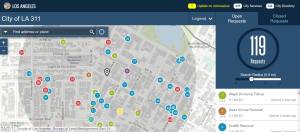Cities face ‘huge trade-off’ to adopt new tech for coronavirus response

As local governments struggle to contain the spread of the coronavirus, the technology startup community is looking to assist with data-driven tools, even if that means pro-bono or at-cost partnerships, according to executives from several technology companies participating in a webinar Tuesday.
Because rapid mass-testing for COVID-19 hasn’t been widely implemented across the U.S., local governments are relying on software and data that they already collect to determine whether public health measures like social distancing and shelter-in-place orders are working. It’s become an opportunity for data-analytics companies to showcase the efficacy of their public health and location-data modeling, said Alex Koeberle, a senior data scientist at Civis Analytics, one of the companies sharing its coronavirus response efforts in a webinar Tuesday to provide updates on CivStart’s accelerator program.
“There’s a huge trade-off discussion right now on trying to get up to speed on something new that could potentially be really helpful and useful versus sticking with what you got, process-wise,” Koeberle told StateScoop.
Civis Analytics is one of several companies in the CivStart cohort to offer data dashboards that city, state and county governments can use to zoom in on how well public health measures are working in particular census blocks or counties, using public data from the Centers for Disease Control and Prevention, Data.Gov, the Census Bureau, as well as state and county health departments.
After health data is combined with demographic and socioeconomic data, Koeberle said, online dashboards can arm government officials with better information to tailor their public messaging. One example, he said, is directing notices in other languages to neighborhoods with large populations of people who speak English as a second language. The challenge, he said, is making new connections with public agencies that are strapped for resources during the pandemic, especially in data-analytics departments which often have only one or two employees.
“In the groups, nonprofits or governments we’re already working with, it’s way easier for them to get up to speed,” Koeberle said.
Several of the startups in the CivStart cohort, including the AI-powered software company WhyLine and the geospatial analytics company Orbital Insights, said they’re offering their services to local governments for free or at deep discounts. While many governments have their hands full with procuring basic necessities like laptops, desperate times call for desperate measures, Koeberle said.
“There are situations where a group totally doesn’t have a tool in their toolkit right now, so they don’t really have a choice but to go out and find something,” he said.
Orbital Insights has tailored its geospatial data software to assist governments with COVID-19 outbreaks, aggregating cellphone or GPS data in commercial corridors to determine whether people are actually staying home during shelter-in-place orders. Though the data can’t show whether people are staying six feet apart — the minimum standard for social distancing — governments can use it to understand how their policies affects the public’s movements and behavior.
“Are we seeing people congregate in parks, are we seeing people completely leave the commercial district, how is that changing over time?” said Eric Lewandowski, an account executive at Orbital Insight. “We can start to be really data-driven about this.”






